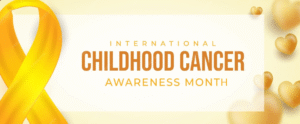History
Alcohol is now recognized as the leading preventable cause of birth defects and developmental disorders. On September 9th, the American National Institute on Alcohol Abuse and Alcoholism recognizes International Fetal Alcohol Spectrum Disorders (FASD) Awareness Day as a reminder that there is no “safe” level of drinking while pregnant.
This awareness day was initiated by Bonnie Buxton, Brian Philcox, and Teresa Kellerman in 1999.
Definition
Fetal Alcohol Syndrome Disorders (FASDs) are a group of irreversible conditions in a child that results from alcohol exposure during the mother’s pregnancy.
The medical disorders collectively labeled FASD include:
- Fetal Alcohol Syndrome (FAS)
- Partial Fetal Alcohol Syndrome (PFAS)
- Alcohol-Related Neurodevelopmental Disorder (ARND)
- Alcohol-Related Birth Defects (ARBD)
Causes
Alcohol Consumption During Pregnancy:
When a pregnant woman drinks alcohol, it enters the bloodstream and reaches the developing fetus by crossing the placenta, the fetus metabolizes alcohol slower than in adults, thereby increasing alcohol concentration in the fetus bloodstream, this interferes with the delivery of oxygen and optimal nutrition to the developing baby, hence, causing harm to the development of tissues and organs, followed by permanent brain damage to the fetus.
Symptoms
The severity of fetal alcohol syndrome symptoms varies, with some children experiencing them to a far greater degree than others. Signs and symptoms of fetal alcohol syndrome may include any mix of physical defects, intellectual or cognitive disabilities, and problems functioning and coping with daily life.
- Distinctive facial features, including small eyes, an exceptionally thin upper lip, a short, upturned nose, and a smooth skin surface between the nose and upper lip.
- Poor coordination or balance, intellectual disability, learning disorders and delayed development, poor memory, trouble with attention and with processing information.
- Difficulty in school, trouble getting along with others, poor social skills, Trouble adapting to change or switching from one task to another
Risk Factors
- Poor nutrition, multiple pregnancies, and births
- Smoking
- A member of a family of heavy drinkers
- Social isolation
- Living in circumstances where alcohol misuse is common and accepted
- Living in a community where resources for prenatal care are limited.
- Mother’s genetic makeup
- Child’s genetic makeup
- Changes in gene activity caused by prenatal alcohol exposure.
Complications
Behavioural problems that are not present at birth, but that can result from having fetal alcohol syndrome (secondary disabilities) may include:
- Attention-deficit/hyperactivity disorder (ADHD), aggression, inappropriate social conduct, and breaking rules and laws, alcohol, or drug misuse
- Mental health disorders, such as depression, anxiety, or eating disorder, Problems staying in or completing school, problems with independent living, and with employment
- Inappropriate sexual behaviours, early death by accident, homicide, or suicide
Interventions
- School-based interventions can help children with FASD learn more easily. School-based interventions may include specialized teaching strategies that provide a consistent routine and allow children to practice new skills repeatedly.
- Family support groups and classes to help parents better care for a child with FASD.
- Nutritional supplements for pregnant women and postnatal supplements for their children.
- Behavioural interventions for affected children, including training in social skills, problem-solving, and personal safety.
Prevention
- Do not drink alcohol if you are trying to get pregnant.
- Continue to avoid alcohol throughout your pregnancy.
- Consider giving up alcohol during your childbearing years.
- If you have an alcohol problem, get help before you get pregnant.










